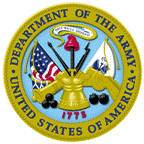United States Department of Defense
Document Type
Article
Date of this Version
2009
Abstract
Complementary and alternative medicine (CAM) therapies present a growing information management challenge for physicians because nearly 40% of their patients may be using and another 50% may be considering use of CAM as part of their health care regimen. The National Health Statistics Reports for 2007 described the most commonly used nonvitamin, nonmineral therapy as natural products (eg, herbals at 17.7%). More than5% of children under the age of 18 years used CAM for allergic conditions including asthma. The amount and quality of information available and concerns about liability risk represent a challenge for most physicians. This review focuses on considerations for approaching a CAM-related consultation, incorporating legal and logistic factors affecting how such an encounter should be approached. A 10-step process is presented that addresses different components of CAM consultations and what should be documented. Access to timely, high-quality information regarding product specific efficacy and safety data, as found in the Natural Medicines Comprehensive Database, is needed to support CAM consultation efficiently. Understanding of serious adverse events associated with CAM is limited; an international need exists for improved safety surveillance and information sharing. Allergy-immunology, as a specialty with expertise in adverse drug reaction evaluation and management, has a unique opportunity to support enhanced CAM-related adverse events evaluations, reporting, and research.



Comments
Published in Journal of Allergy and Clinical Immunology VOLUME 123, NUMBER 2 (February 2009).